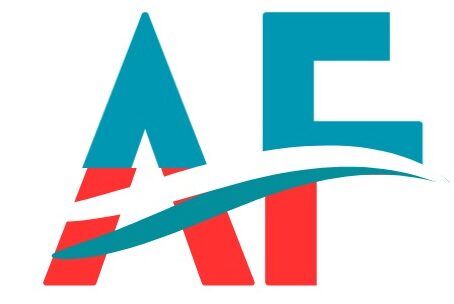BlackRock, a global leader in investment management, has consistently expanded its portfolio to encompass various asset classes, including private markets. As the firm seeks to launch index funds that tap into this lucrative segment, it encounters substantial challenges. These obstacles not only impact BlackRock’s growth trajectory but also influence the broader landscape of private market investments. This blog post delves into the complexities BlackRock faces in its quest for private market index fund ambitions, examining the implications for investors, the market, and the company itself.
Understanding Private Markets and Index Funds
Before delving into the challenges faced by BlackRock, it’s essential to understand the concepts of private markets and index funds.
What Are Private Markets?
Private markets refer to investments that are not traded on public exchanges. They include private equity, venture capital, real estate, and infrastructure investments. These markets offer unique opportunities for investors to achieve higher returns, but they also come with risks, such as illiquidity and a lack of transparency.
The Role of Index Funds
Index funds are investment vehicles designed to track the performance of a specific index, such as the S&P 500. They offer diversification, lower fees, and ease of management, making them appealing to a wide range of investors. BlackRock has been a pioneer in the index fund space with its iShares brand, which has transformed the investment landscape.
BlackRock’s Vision for Private Market Index Funds
In recent years, BlackRock has expressed ambitions to create index funds that encompass private market investments. This initiative aligns with a growing trend among institutional investors seeking exposure to private markets for potential higher returns. However, the path to achieving this vision is fraught with challenges.
Key Challenges Facing BlackRock
1. Regulatory Hurdles
One of the foremost challenges BlackRock encounters is navigating the regulatory landscape. Private markets are subject to different regulations compared to public markets. For instance, the U.S. Securities and Exchange Commission (SEC) has stringent rules governing the disclosure and reporting of private funds. BlackRock must ensure compliance with these regulations, which can be complex and time-consuming.
Furthermore, regulatory scrutiny has intensified in recent years, as authorities aim to protect investors and maintain market integrity. BlackRock will need to engage with regulators to create a compliant framework for its private market index funds, which may delay the launch of these products.
2. Liquidity Issues
Private market investments are generally illiquid, meaning that investors cannot easily buy or sell them. This lack of liquidity presents a significant challenge for BlackRock in structuring index funds that include these assets. Investors in index funds typically expect the ability to redeem their shares at any time, akin to traditional mutual funds or publicly traded ETFs.
To address this liquidity issue, BlackRock may need to implement lock-up periods or other mechanisms to ensure that it can manage cash flows effectively. However, such measures could deter potential investors who prefer the flexibility of liquidity.
3. Data Transparency and Value Challenges
Another critical challenge lies in the transparency and valuation of private market assets. Unlike public companies, private firms are not required to disclose financial information regularly, making it difficult to assess their performance accurately. BlackRock will need to develop robust methodologies for valuing these assets to provide investors with confidence in the index fund’s performance.
Moreover, data on private market investments can be limited, which complicates the creation of an index that truly reflects the market’s performance. BlackRock may need to invest in data analytics and partnerships with data providers to obtain accurate and timely information on private market assets.
4. Competition in the Private Markets Space
The private markets landscape is becoming increasingly competitive, with numerous firms vying for market share. BlackRock faces competition not only from traditional asset managers but also from specialized private equity and venture capital firms that have established reputations in the private markets.
To differentiate itself, BlackRock must leverage its extensive resources, brand recognition, and distribution capabilities. However, building a compelling value proposition for investors in this space will require innovative product offerings and a deep understanding of investor needs.
5. Investor Education and Acceptance
Investor education is crucial when introducing new investment products, particularly in the private markets. Many investors may be unfamiliar with the nuances and risks associated with private market investments. BlackRock will need to invest in educational initiatives to help investors understand the benefits and potential pitfalls of private market index funds.
Furthermore, gaining investor acceptance may take time, as many investors have established preferences for traditional public market investments. BlackRock must articulate a clear narrative on why private market exposure is essential for portfolio diversification and long-term growth.
The Broader Implications for the Investment Landscape
BlackRock’s challenges in launching private market index funds have broader implications for the investment landscape. As one of the largest asset managers globally, BlackRock’s moves are closely watched by other firms and investors alike.
Impact on Institutional Investors
Institutional investors, such as pension funds and endowments, are increasingly allocating capital to private markets in search of higher returns. If BlackRock successfully navigates its challenges, it could pave the way for more institutions to follow suit, further driving capital into private market investments.
Conversely, if BlackRock struggles to launch these products, it may deter other firms from pursuing similar initiatives, stifling innovation in the private market investment space.
Influence on Investor Sentiment
The success or failure of BlackRock’s private market index fund ambitions could also impact investor sentiment towards private markets. If investors perceive these products as valuable and beneficial, it could lead to increased demand for private market investments overall. However, if the products are met with skepticism, it may hinder the growth of private market investing as a whole.
AFRIPOPULA

